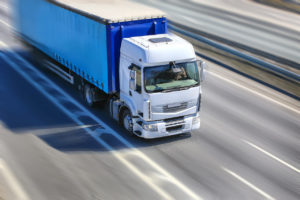VAT deduction on fuel purchases – under what conditions?
The Law on Value Added Tax of March 11, 2004, specifically Art. 86a of this document, clarifies in what situations and to what extent a business can deduct VAT for fuel. It all depends on whether the fueled vehicle is used exclusively for business purposes or mixed use (both business and personal use).
How to deduct VAT for fuel purchases in full?
In order to be able to deduct 100 percent of the VAT on a fuel invoice, the entrepreneur must meet a prerequisite: include the vehicle in the company’s fixed asset register, and therefore also take care of its depreciation. This entails several additional responsibilities.
First: a taxpayer who wants to deduct all VAT must send a completed VAT-26 form to the relevant tax office.
Second: the entrepreneur is obliged to keep mileage records (also known as records of vehicle use or, more commonly, mileage records). We can find a detailed description of the data that this record should contain in the aforementioned VAT law, in Art. 86a, para. 7.
Important!
“Kilometer” is a term also used for calculations related to employee business travel. To distinguish the latter, we usually call the employee’s mileage.
What information should be included in the mileage records of a passenger car?
Here is the data, without which the record of vehicle use will not be binding:
- company car registration number,
- The date of commencement and the date of termination of the mileage record,
- meter status.
Important!
The vehicle’s odometer balance should be written down as of the date the record-keeping begins – for example, on the day the vehicle is purchased, if the entrepreneur plans to keep mileage records from the beginning.
But it doesn’t end there: the odometer balance must also be entered in the records at the end of each accounting period and on the date the entrepreneur ended keeping mileage records (for example, when the car is sold or removed from the company’s fixed assets).
The odometer must also contain entries of the persons driving the vehicle in question. Each of these entries should include:
- entry number,
- The date and purpose of the trip,
- A description of the route including the starting and ending points,
- The number of kilometers traveled,
- data of the person driving the vehicle (usually the first and last name is enough).
At the end of each accounting period, the number of kilometers driven should also be summarized and entered into the records.
Other obligations related to mileage records
That’s still not all – the taxpayer must sign the entries appearing in the records. In this way, it certifies that the data entered in the mileage log is collected honestly and authentically.
In addition, it is the entrepreneur’s responsibility to construct rules and regulations for the use of the company vehicle – in turn, employees and other persons using the car, are required to read and comply with the provisions of the document. The wording of the regulations must categorically exclude the use of the vehicle for private purposes.
Important!
If the taxpayer meets the criteria that allow him to deduct 100% of the VAT for fuel, this means that he can also fully deduct other operating costs of the vehicle, including repairs, service costs, inspections or expenses related to foreign travel (vignettes, additional vehicle insurance).
75% VAT deduction on fuel expenses
It is possible to deduct ¾ of the VAT for fuel. The right to deduct tax in this amount is acquired by a taxpayer who has entered the vehicle in the company’s fixed asset register, but does not keep mileage records.
50% VAT deduction on fuel
Not all companies can take advantage of the full VAT deduction for fuel. This is due to the fact that some entrepreneurs – especially in JDGs – use vehicles in mixed mode. In this situation, taxpayers are entitled to a 50% VAT deduction on fuel.
An important convenience for entrepreneurs who do not care about writing off VAT in full is the fact that neither a VAT-26 form nor keeping a mileage log is needed for the 50 percent deduction. You only need to run a business, enter the car in the fixed asset register and also use the vehicle for business purposes to be able to deduct 50% of the VAT on fuel and as much as 75% of the net amount from invoices for vehicle operating expenses.
Example:
Ms. Janina runs a sole proprietorship. She entered the passenger car in the company’s fixed asset records, but does not keep mileage records. In March, she filled the vehicle to capacity and paid a gross of PLN 320, which is:
- 260,16 zł net
- 59.84 PLN VAT.
How to make the correct deduction in this situation? Ms. Janina must deduct half of the VAT (PLN 29.92) and then from the remaining amount (PLN 260.16 + PLN 29.92 = PLN 290.08) deduct 75%, or PLN 217.56. It is this amount that is tax deductible.
The tax office does not in any way check how often the taxpayer uses the vehicle for business purposes. It is also irrelevant what portion of the fuel is used for company purposes and what portion is used for private purposes. As with the full deduction, taxpayers can include expenses incurred in repairs and other vehicle operating costs as deductible expenses – reduced to 75%, of course.
VAT deduction for fuel and other expenses at 20%
The last option – the least favorable from the taxpayer’s point of view – is to deduct VAT for fuel and other operating costs when the vehicle is privately owned by the entrepreneur and is not included in the company’s fixed asset register.
In such an arrangement, the taxpayer can deduct only 20% of the cost of fuel, repairs, maintenance or vulcanization services. Provisions relevant in this context can be found in the PIT Law, specifically in Art. 23, para. 1, para. 46:
“Expenses incurred for the cost of using, owned by a business taxpayer, a passenger car that is not an asset referred to in Art. 14 paragraph. 2(1), and insurance premiums for such car; however, these expenses and premiums at a rate of 20% are deductible provided that the car is also used for purposes related to the taxpayer’s business activities.”


